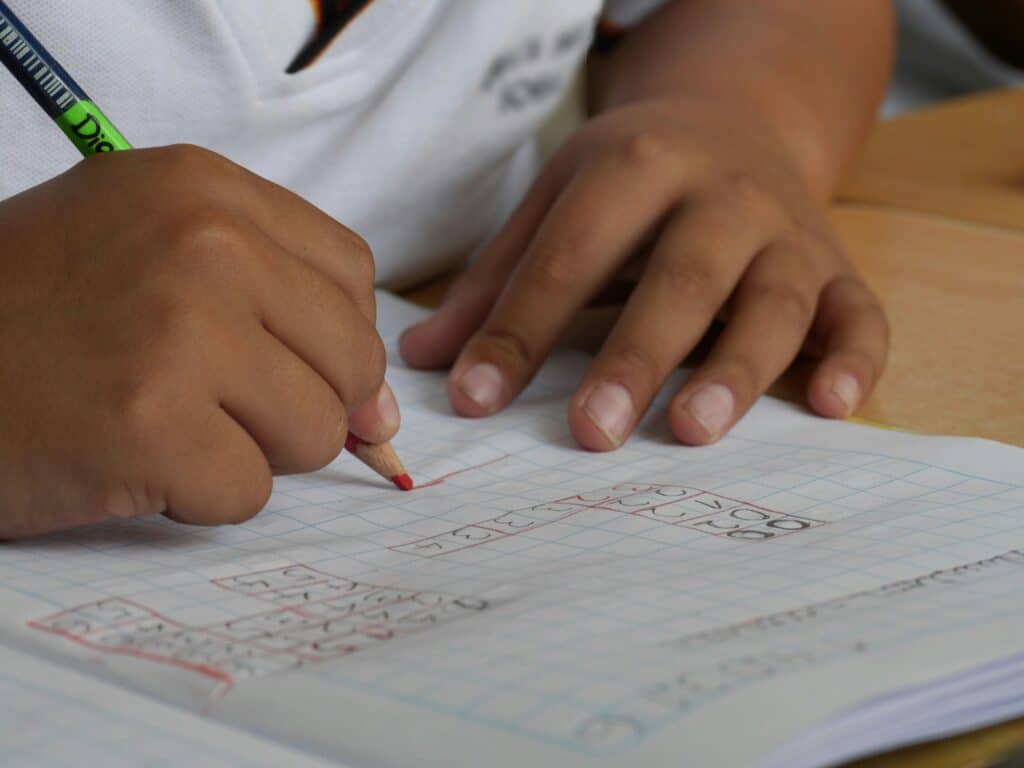8 Effective Test Preparation Tips: Strategies for Students

Finding Your Starting Point
On the morning of your biology midterm, you wake up with a knot in your stomach.
You look at your notes and feel that familiar rush of stress right before a test.
You remember how cramming last semester didn’t help.
That memory pushes you to look for approaches that feel clearer and easier to follow.
As a student who needs test prep, you want steps that fit your schedule.
You don’t need long study marathons; you need practical test preparation tips you can use today.
What you might be feeling right now:
- You want a simpler way to prepare without overwhelm.
- You want habits that feel realistic, not exhausting.
- You want strategies you can start even when you feel behind.
Seeing Why Preparation Matters
You’ve tried rushing through notes before, but you’ve also seen how that approach drains your energy.
You might be ready for methods that help you focus and remember more.
These test preparation tips connect your daily decisions with your performance.
They help you see preparation as something small you repeat, not something you panic through.
What effective prep can do for you:
It supports your confidence when you walk into the room.
It gives you structure when everything feels scattered.
It helps you stay calm when a test is close.
Eight Strategies You Can Use Now
1. Break Your Study Time Into Smaller Blocks

Short, focused sessions improve retention more than long, uninterrupted marathons because they let your brain consolidate information between attempts (Dunlosky et al.).
This method supports steady study habits and reduces burnout.
How this helps you:
- Shorter bursts let you maintain high-quality focus.
- Regular rests prevent the fading of attention and cut stress.
Action steps you can use today:
- Set a 25–30 minute timer for focused study.
- Take a 5–10 minute break, stretch, or breathe.
- After 3–4 cycles, take a 20–30 minute break.
Why it works:
Spacing mini-sessions forces you to restart attention and to re-encode material, improving long-term recall (Dunlosky et al.).
Try a daily checklist so short sessions feel like wins.
2. Use Active Recall — Test Yourself Often
Active recall strengthens memory by forcing retrieval, which builds stronger neural traces than rereading (Dunlosky et al.).
Scholarlysphere users often report big gains when they replace passive review with retrieval practice.
What active recall looks like:
- Close your notes and explain a concept aloud.
- Turn headings into quick questions you answer from memory.
- Use flashcards or low-stakes quizzes.
How to build it into an effective study routine:
- Begin each session with 5 minutes of retrieval from the prior session.
- Mark topics you miss and focus the next session on those.
- Convert class objectives into short self-quizzes.
Evidence-based tip:
Frequent retrieval shows clearer learning gains than rereading the same pages repeatedly (Dunlosky et al.).
Start with short recall checks and scale up to timed quizzes.
3. Space Out Practice Across Days and Weeks

Spaced practice means revisiting ideas at increasing intervals rather than cramming.
Spacing helps memory consolidation and transfer to new problems (Dunlosky et al.; Chang et al.).
Concrete routine to try:
- Review lecture notes the same day briefly.
- Revisit key ideas 1–2 days later.
- Return again after 1 week and after 3 weeks.
Practical scheduling tips:
- Add review slots to your calendar for topics you’ll be tested on.
- Use a simple Leitner-style card box or app to manage intervals.
- Make a weekly plan that revisits older topics.
Why spacing improves exam readiness:
Repeated, spaced retrieval forces more durable recall and reveals gaps earlier, giving you time to fix them (Dunlosky et al.).
College Board research finds practice over time relates to stronger test performance on digital practice (Chang et al.).
4. Practice With Real Tests and Get Fast Feedback
Simulated tests mirror exam conditions and reduce surprises on test day.
Practice tests also show which errors are knowledge gaps versus careless mistakes (College Board; ACT, Inc.).
How to use practice tests well:
- Time yourself and copy test conditions.
- Score honestly and log what you missed.
- Spend focused review time only on missed items.
Actionable feedback loop:
- After each practice test, make a short error list.
- Plan two targeted sessions to correct those errors.
- Retake the same-style practice test after focused review.
Why this helps you:
Full practice builds stamina and familiarizes you with format and pacing, important parts of exam readiness (College Board; ACT, Inc.).
Frequent timed practice reduces anxiety through familiarity.
5. Mix Topics — Use Interleaving and Vary Practice

Rather than block a single topic for hours, mix topics in one session.
Interleaving helps you learn to choose strategies and to discriminate similar problems (Dunlosky et al.; Cornell University).
How to interleave effectively:
- Create short sets with 3 different topics.
- Rotate problems so you switch every 10–20 minutes.
- End with active recall covering all three topics.
Practical example:
If studying math: do a geometry problem, then algebra, then statistics.
This builds flexibility and improves transfer when problems look different on tests.
Why it builds durable learning:
Varied practice prevents mindless repetition and strengthens your ability to pick the right method under pressure (Dunlosky et al.; Cornell University).
Mixing topics trains judgment, not just procedures.
6. Prioritize Sleep, Movement, and Nutrition
Sleep and physical health directly influence memory and focus.
Insufficient sleep impairs memory consolidation, attention, and mood (Centers for Disease Control and Prevention; National Heart, Lung, and Blood Institute).
Simple daily habits to improve learning:
- Aim for consistent sleep windows nightly.
- Move for 15–30 minutes most days.
- Eat a balanced breakfast before morning tests.
How to adapt when schedules are tight:
- Short naps (20–30 minutes) can restore alertness before studying.
- Avoid high caffeine late in the day that disrupts sleep cycles.
- Use light exercise to reset focus during long study days.
Why health choices matter for study habits:
Good sleep strengthens recall from study sessions, so your time studying becomes more efficient (CDC; NHLBI).
Treat sleep like a study tool, not a luxury.
7. Reduce Digital Distractions and Build Focused Environments

Devices can fragment attention and reduce deep focus.
Data show widespread device access and frequent interruptions among students (Pew Research Center).
Practical ways to control tech:
- Put your phone in another room or use focus apps.
- Block social apps during timed study blocks.
- Create a dedicated, clutter-free study corner.
Small environmental fixes that help:
- Use noise-cancelling headphones or ambient noise playlists.
- Keep only the materials you need on your desk.
- Signal to roommates or family when you need uninterrupted time.
Why this boosts effective study routines:
Fewer interruptions let you complete full retrieval cycles and deepen encoding.
Consistent environments cue your brain into focused work.
8. Plan Metacognitively and Prepare a Calm Test-Day Mindset
Metacognition—thinking about your thinking—helps you choose better strategies and monitor progress (University of North Carolina Learning Center; APA).
Planning improves efficiency and reduces last-minute panic.
How to plan with metacognition:
- Before each session, name your goal and success criteria.
- After each session, note what worked and what to change.
- Use a short checklist for test day logistics and strategies.
Test-day routines that calm you:
- Prepare materials the night before (ID, tools, water).
- Use a 3–5 minute breathing or visualization pause before the test.
- Start with easy questions to build momentum.
Why mindset matters for exam readiness:
Metacognitive checks let you identify weak spots earlier so you can act, rather than guessing under time pressure (UNC Learning Center; APA; Harvard Graduate School of Education).
A calm routine can reduce stress and improve retrieval under test conditions.
Each of these test preparation tips links back to how you study, practice, and care for yourself.
Pick one or two strategies and commit to them for a week.
Track what changes — small, consistent shifts often add up to bigger gains.
Bringing Everything Together With Confidence

When you look at your week as a whole, it can feel like you have too much to manage.
Tests, homework, activities, and stress often pull your attention in different directions.
This is where steady study habits give you an edge.
They help you stay organized even when life feels messy.
Every strategy you learned in Section 2 fits into one larger idea.
Small, repeated actions work better than last-minute cramming because your brain remembers steady routines (Dunlosky et al.).
You don’t need to change everything at once.
Starting with one or two test preparation tips may help you feel calmer and more focused.
Building Your Personal Study Rhythm
Your learning rhythm becomes stronger when you understand what helps you stay consistent.
This rhythm includes breaks, review cycles, and moments of rest that build stronger memory (Dunlosky et al.).
You can shape this rhythm using the strategies you already explored.
Using short sessions, retrieval practice, and spaced review gives you a flexible structure.
Here’s what a helpful rhythm can offer you:
- A way to study without feeling lost or pressured.
- Clear steps to follow when a test approaches.
- Confidence from noticing your own progress.
When you feel stuck, returning to your rhythm helps you reset.
This is why building effective study routines gives you long-term strength.
Connecting Strategies to Your Real Life
Every student’s schedule looks different.
Your workload, activities, and sleep patterns may shift from week to week.
That’s why flexible test preparation tips matter.
They adjust to how busy or tired you feel.
When things feel tight, choose smaller actions that still support learning.
Short recall checks, light review, or one spaced session can still help you hold information (Chang et al.).
With these flexible steps, you protect your exam readiness even when the week feels unpredictable.
What flexibility might look like for you:
- Using a 10-minute recall session when time is short.
- Breaking a topic into two smaller reviews.
- Reviewing older material while waiting between activities.
Your goal isn’t perfection.
Your goal is progress you can keep going.
Understanding Why These Methods Work
These strategies are grounded in research on memory and learning.
Spacing, recall, and varied practice help your brain store information more effectively (Dunlosky et al.; Cornell University).
Sleep and health also affect how well you focus.
Better sleep supports concentration and memory retention, making your study time more productive (NHLBI; CDC).
Managing distractions helps your attention stay steady.
Reduced interruptions give your brain the space it needs to encode new ideas (Pew Research Center).
This clear research base supports each method you learned.
You’re not guessing what works — you’re choosing strategies backed by evidence.
Turning Ideas Into a Weekly Plan

A weekly plan helps you use these ideas in a simple way.
You don’t need a long planner or complex system.
You can start with a short structure:
- Choose two strategies to focus on this week.
- Schedule short sessions across three or four days.
- Add one rest day to reset your energy.
This keeps your plan manageable.
You’ll start noticing which methods help you learn faster and feel more confident.
Each week becomes a chance to adjust your effective study routines.
Small tweaks help you build momentum.
Growing Your Academic Confidence
Confidence grows when you see your choices paying off.
You may feel calmer walking into a test because your routine helped you prepare.
Better study habits often lead to stronger recall, clearer thinking, and steadier focus.
These feelings make test days less stressful and more predictable.
Your confidence doesn’t come from knowing every answer.
It comes from trusting the work you did in the days before.
Across the semester, this confidence helps you handle challenges with more courage.
It gives you a sense of control when everything else feels busy.
As you look back at these strategies, think about the first small change you want to try.
Which of these test preparation tips will you begin with this week?
References
U.S. Department of Education, Institute of Education Sciences, National Center for Education Statistics. The Condition of Education 2024. 2024, https://nces.ed.gov/pubs2024/2024144.pdf Accessed 24 Nov. 2025
National Center for Education Statistics. “About One-Quarter of Public Schools Reported That Lack of Focus or Inattention From Students Had a Severe Negative Impact on Learning in 2023–24.” NCES, 18 July 2024, https://nces.ed.gov/whatsnew/press_releases/7_18_2024.asp Accessed 24 Nov. 2025
Dunlosky, John, et al. “Improving Students’ Learning With Effective Learning Techniques: Promising Directions From Cognitive and Educational Psychology.” Psychological Science in the Public Interest, vol. 14, no. 1, 2013, pp. 4–58, https://journals.sagepub.com/doi/10.1177/1529100612453266 Accessed 24 Nov. 2025
American Psychological Association. “Learning and Memory.” APA, n.d., https://www.apa.org/topics/learning-memory Accessed 24 Nov. 2025
Weinstein, Yana, and Megan A. Smith. “2 Research-Tested Learning Strategies.” Edutopia, 16 Feb. 2017, https://www.edutopia.org/article/hurts-so-good-yana-weinstein-megan-smith/ Accessed 24 Nov. 2025
Harvard Graduate School of Education. “Reducing Stress in Schools.” Harvard Graduate School of Education, 6 Mar. 2025, https://www.gse.harvard.edu/ideas/edcast/25/03/reducing-stress-schools Accessed 24 Nov. 2025
University of North Carolina at Chapel Hill, Learning Center. “Metacognitive Study Strategies.” UNC Learning Center, n.d., https://learningcenter.unc.edu/tips-and-tools/metacognitive-study-strategies/ Accessed 24 Nov. 2025
Cornell University, Center for Teaching Innovation. “Active Learning.” Cornell University, n.d., https://teaching.cornell.edu/teaching-resources/active-collaborative-learning/active-learning Accessed 24 Nov. 2025
Centers for Disease Control and Prevention. “FastStats: Sleep in High School Students.” CDC, 15 May 2024, https://www.cdc.gov/sleep/data-research/facts-stats/high-school-students-sleep-facts-and-stats.html Accessed 24 Nov. 2025
National Heart, Lung, and Blood Institute (National Institutes of Health). “How Sleep Affects Your Health.” NHLBI / NIH, 15 June 2022, https://www.nhlbi.nih.gov/health/sleep-deprivation/health-effects Accessed 24 Nov. 2025
Adolescent Sleep Working Group. “School Start Times for Adolescents.” Pediatrics, vol. 134, no. 3, 2014, pp. 642–649. PubMed Central, https://pmc.ncbi.nlm.nih.gov/articles/PMC8194457/ Accessed 24 Nov. 2025
Chang, Briana, Bercem Akbayin-Sahin, and Jessica Howell. “Examining the Relationship Between Digital SAT Practice in Bluebook and SAT Performance.” College Board Research, May 2025, https://research.collegeboard.org/media/pdf/DigitalSATPracticeTests_052025.pdf Accessed 24 Nov. 2025
Pew Research Center. “Teens and Internet, Device Access Fact Sheet.” Pew Research Center, 10 July 2025, https://www.pewresearch.org/internet/fact-sheet/teens-and-internet-device-access-fact-sheet/ Accessed 24 Nov. 2025
ACT, Inc. “Develop Solid Study Skills.” ACT: College and Career Readiness, n.d., https://www.act.org/content/act/en/students-and-parents/high-school-success/high-school-resources/develop-solid-study-skills.html Accessed 24 Nov. 2025


Hello There. I found your blog using msn. This is an extremely well written article.
I’ll be sure to bookmark it and return to read more of your helpful information. Thanks for
the post. I will definitely return.